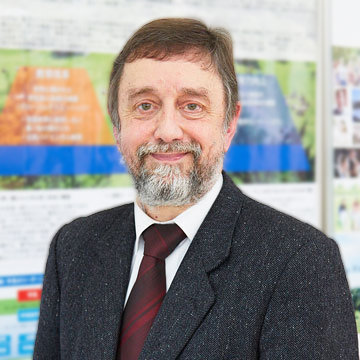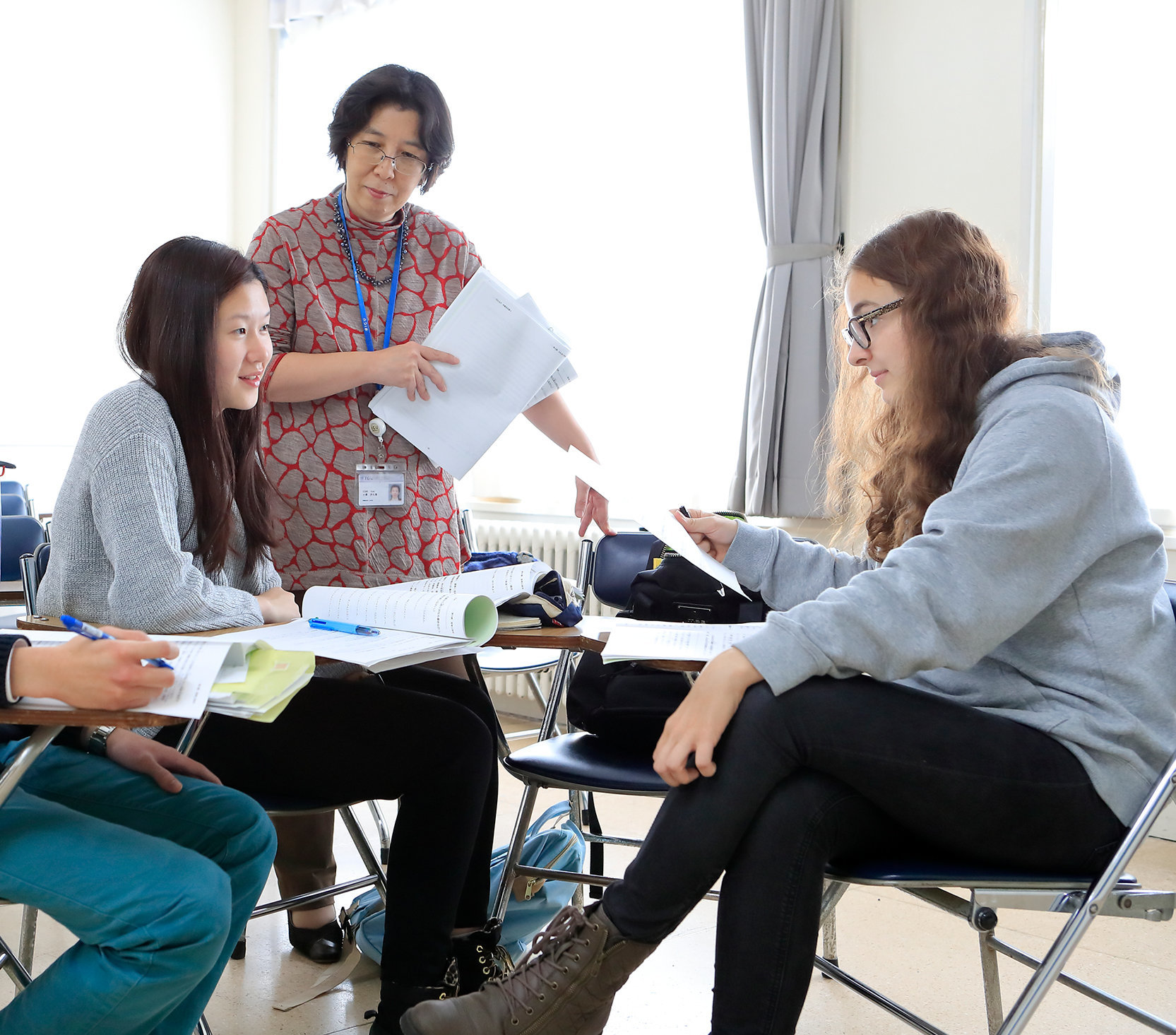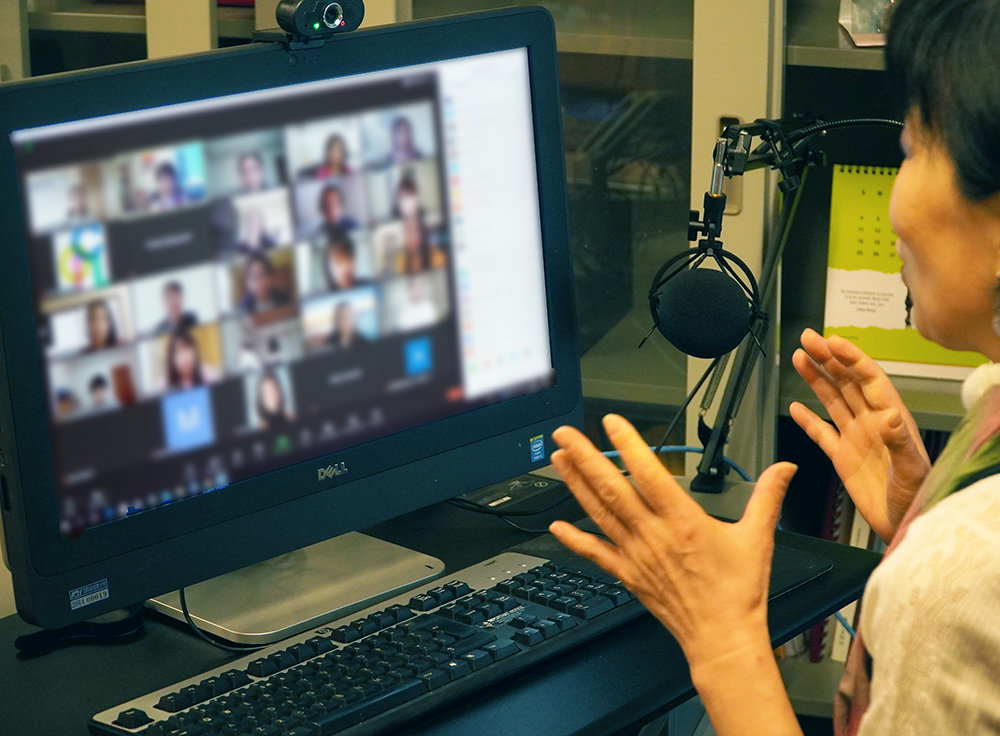NEWS
Message from International Christian University (ICU) , No6
Update: March 17, 2021
This E-Newsletter is mainly for teachers and counselors involved in secondary education, but is open to individuals who wish to subscribe to it.
Please fill in the form below and click on the "Subscribe to this E-Newsletter" button.
Subscribe to this E-Newsletter
Message from ICU , No.6(March 17, 2021 )
ICU's 'International' Vision & Study Abroad Programs in the COVID Era
Mark Williams,
Vice President for International Academic Exchange
 When the seriousness of the COVID-19 pandemic first became apparent last spring, many of us with responsibilities for international programs were left struggling to keep up with events. And here at ICU - whose commitment to the nurture of truly 'global citizens' is enshrined, not just in our name, but in our founding principles - we too were confronted with the dual tasks of ensuring the safety of all our students in the short-term whilst, at the same time, seeking to ensure that our 'international' vision would remain integral to our mission in the longer term.
When the seriousness of the COVID-19 pandemic first became apparent last spring, many of us with responsibilities for international programs were left struggling to keep up with events. And here at ICU - whose commitment to the nurture of truly 'global citizens' is enshrined, not just in our name, but in our founding principles - we too were confronted with the dual tasks of ensuring the safety of all our students in the short-term whilst, at the same time, seeking to ensure that our 'international' vision would remain integral to our mission in the longer term.
 Ensuring that all our exchange students had the necessary information to enable them to make the appropriate decisions as the situation deteriorated was no easy task: at the time, we had nearly 200 ICU students studying at our various overseas exchange partners (plus a few who had made individual Study Abroad arrangements on a fee-paying basis) and 134 One-Year and One-Term Regular students who were planning to study on our campus in spring 2020. In the event, the vast majority of both cohorts of students returned home, many in mid-course and, where appropriate, arrangements were made to ensure that they could transfer appropriate credits and continue their studies online.
Ensuring that all our exchange students had the necessary information to enable them to make the appropriate decisions as the situation deteriorated was no easy task: at the time, we had nearly 200 ICU students studying at our various overseas exchange partners (plus a few who had made individual Study Abroad arrangements on a fee-paying basis) and 134 One-Year and One-Term Regular students who were planning to study on our campus in spring 2020. In the event, the vast majority of both cohorts of students returned home, many in mid-course and, where appropriate, arrangements were made to ensure that they could transfer appropriate credits and continue their studies online.
 But the problem of how to maintain our international focus remained - and in the intervening months we have pursued a variety of initiatives designed to provide our students with at least a semblance of a Study Abroad experience, albeit virtual. One of these has been to build on the COIL (collaborative online international learning) project for which, in collaboration with Tokyo University of Foreign Studies, we have received 5-year funding from the Japanese Ministry of Education (MEXT). The original plan was to set up a series of student-focused joint projects whereby ICU students were brought together with students from our partners in the UC system and with USC for specific educational purposes - and we have already begun to see the fruits of this initiative. But, with the advent of online teaching and the opportunities this affords to bring student groups together in a variety of formats (not limited simply to one professor 'co-teaching' a class), we have sought to expand the scope of this medium - which has led, in turn, to our 'Language buddies' program (whereby more than 80 ICU students have been paired with students from a number of our partners worldwide primarily for the purpose of Japanese-English language exchange); the 'language table' program (whereby, in support of our 2+1 language policy*, we have sought to provide space for students who wish to congregate and focus on discussion in a particular language, not limited to Japanese and English); and ongoing discussions designed to involve more professors from our partners as guest lecturers on our courses.
But the problem of how to maintain our international focus remained - and in the intervening months we have pursued a variety of initiatives designed to provide our students with at least a semblance of a Study Abroad experience, albeit virtual. One of these has been to build on the COIL (collaborative online international learning) project for which, in collaboration with Tokyo University of Foreign Studies, we have received 5-year funding from the Japanese Ministry of Education (MEXT). The original plan was to set up a series of student-focused joint projects whereby ICU students were brought together with students from our partners in the UC system and with USC for specific educational purposes - and we have already begun to see the fruits of this initiative. But, with the advent of online teaching and the opportunities this affords to bring student groups together in a variety of formats (not limited simply to one professor 'co-teaching' a class), we have sought to expand the scope of this medium - which has led, in turn, to our 'Language buddies' program (whereby more than 80 ICU students have been paired with students from a number of our partners worldwide primarily for the purpose of Japanese-English language exchange); the 'language table' program (whereby, in support of our 2+1 language policy*, we have sought to provide space for students who wish to congregate and focus on discussion in a particular language, not limited to Japanese and English); and ongoing discussions designed to involve more professors from our partners as guest lecturers on our courses.
Another initiative we have pursued since lockdown began was to seek to enable our students to take courses for credit from overseas campuses This initiative involved two cohorts: those who determined to participate in a full-time study abroad program, albeit virtually from their home base in Japan, and those who decided to register full-time here at ICU but who registered for an additional course at one of our several partners who made such provision available to our students online. With regard to the latter, inspired by partners such as Hong Kong Baptist University (who came to us, towards the outset of the pandemic, with a list of their online courses that ICU students could take for credit), we are currently trying to devise an ICU program along similar lines, one that will enable us to maximize the benefits of online teaching.

One other response we have made to the current situation has been to allow various Japanese national students - those who are registered at US universities but who have been unable to physically attend their campuses and have struggled to keep up with online modes of instruction - to register for ICU courses. In discussion with their home universities in the US, these students have subsequently been able to transfer the credits obtained in this way, thereby enabling them to continue their studies uninterrupted.
The pandemic has forced us all into new ways of thinking and new ways of delivering our programs. As we continue to try and adjust to the new challenges and possibilities, we look forward to working with our overseas partners to ensure that ICU continues to offer an educational experience befitting our founding mission.
*ICU's liberal arts education is built upon a bilingual foundation of Japanese and English, but students have been able to take courses of World Languages in nine other languages from around the world - German, French, Russian, Spanish, Chinese, Korean, Arabic, Indonesian and Italian. We are helping cultivate people who are able to speak the world's languages through the 2 + 1 Program.
Profile of Dr. Mark Williams
Dr.Williams took his BA in Japanese Studies at the University of Oxford and received his Ph.D. in Japanese Literature from the University of California, Berkeley in 1991. He was on the faculty of the University of Leeds from 1988-2017, but between 2011 and 2014, he was seconded to Akita International University, Japan, where he served as Vice President for Academic Affairs. He served as President of the British Association for Japanese Studies between 2008-11. His research has focused on the writings of a series of post-war Japanese Christian authors, most notably those of Endō Shūsaku.
